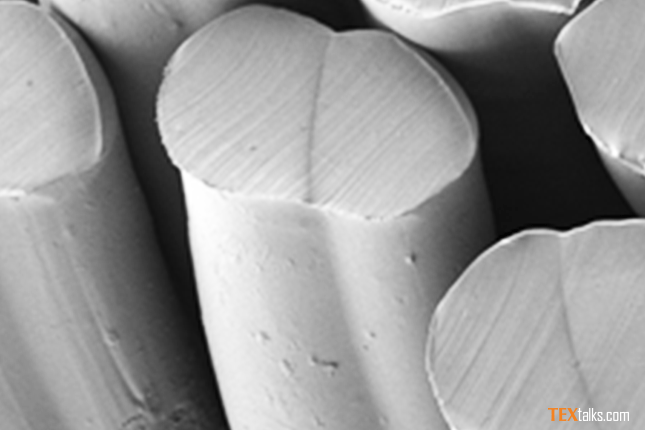The Teijin Group’s fibers and products converting company, announced today its new SOLOTEX® ECO-Hybrid high-stretch side-by-side (S/S) conjugated fiber an eco-friendly plant-derived polymer with a chemically recycled polyester polymer, each featuring different heat-shrinkage characteristics to enable the formation of coiled crimp yarn.
SOLOTEX® ECO-Hybrid represents a new line in Teijin Frontier’s polytrimethylene terephthalate (PTT) fiber SOLOTEX® family. SOLOTEX® ECO-Hybrid filament yarn and textile will be introduced as a featured product for 2020 autumn/winter fashion apparel, offering many possibilities for enhanced sportwear, uniforms and more. Annual sales of SOLOTEX® ECO-Hybrid are expected to grow from JPY 500 million in 2020 to JPY 1.5 billion in 2022 (filament yarn equivalent).

Polymers
Extra stretchability achieved with new technology for conjugating PTT polymer and polyethylene terephthalate (PET) polymer made with chemically recycled raw material, which are then processed to create a crimp structure.
Filament Production
Crimp structure is equivalent to that of petroleum-derived raw materials. Dyeability achieved with optimized yarn-making conditions.
Eco-friendly
PTT polymer is partly made with plant-derived raw materials and PET polymer is made with chemical recycled raw materials such as used polyester fibers.
Versatile fineness
Wide range of fineness, from 33-330 decitex,* and filament yarn processing is possible.
Highly practical
Very stretchable and dyeable, equivalent to those of petroleum-derived materials, and soft texture.
In recent years, demands have been growing for materials offering functionality and comfort, such as stretchability and soft textures. Also, users are seeking eco-friendly fabrics made with recycled and plant-derived materials.
Teijin Frontier’s existing S/S conjugated fiber comprises a highly stretchable SOLOTEX® PTT-fiber polymer made with about 40% plant-based raw materials and PET made of recycled raw materials. The newest version, SOLOTEX® ECO-Hybrid, solves the problem of achieving a consistent crimp structure in an eco-friendly S/S conjugated fiber made with recycled PET.



